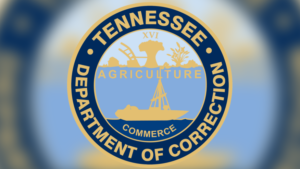NASHVILLE
Before the new contract was awarded, from September 2018 until February 2020, Landers (while serving as a Tennessee State official) used his personal email account to provide confidential TDOC information related to the bidding process to Wells.
On March 1, 2020, Company B hired Landers as its Vice President of Operations, reporting to Wells.
This position was created specifically for Landers; it was not advertised to other candidates and neither Landers nor any other candidates were interviewed before he was hired.
By February 2021, Company B’s senior leadership learned that Landers had given confidential TDOC information to Wells in connection with the RFPs, and the CEO of Company B fired them both.
A few months earlier, in October 2020, Company A filed a civil lawsuit in federal court in Nashville relating to the RFPs, naming Company B and the State of Tennessee as defendants.
In that lawsuit, Company A served subpoenas for documents and testimony on Landers and Wells for all their communications with TDOC employees related to the RFPs.
To impede an investigation into a matter within the FBI’s jurisdiction—namely, bribery—and to conceal that Landers gave confidential TDOC information to Wells about the RFPs, Landers, and Wells agreed to engage in a cover-up and commit perjury in the federal civil lawsuit.
Landers began using a specialized program to delete the communications with Wells in his personal email account that were sought in the subpoena.
Landers and Wells both got new cell phones, which they used to discuss the need to hide information in response to Company A’s subpoenas and deposition notices.
They also both testified falsely under oath in their depositions, including about whether they shared documents related to the RFPs when they last spoke and if they communicated on WhatsApp.
From September 2018 to February 2020, Landers, while serving as a Tennessee state official, used his personal email to share confidential TDOC information about the bidding process with Wells before the new contract was awarded.
On March 1, 2020, Landers was hired as Vice President of Operations at Company B, reporting to Wells.
This position was created specifically for Landers and was not advertised or opened to other candidates. No interviews were conducted for the role.
When Company B’s senior leadership learned that Landers had shared sensitive TDOC information with Wells in February 2021, the CEO fired both of them.
In October 2020, Company A filed a civil lawsuit related to the RFPs in federal court in Nashville, naming Company B and the State of Tennessee as defendants.
Company A subpoenaed Landers and Wells for documents and testimony about their communications with TDOC regarding the RFPs.
To obstruct an FBI investigation into possible bribery and hide the fact that Landers shared confidential TDOC information with Wells, the two conspired to cover up their actions and commit perjury in the civil lawsuit.
Landers used a program to delete his email communications with Wells, which were requested in the subpoena.
Both men also obtained new cell phones to discuss how to hide evidence and later lied under oath during depositions, falsely denying they had shared documents, discussed the RFPs, or communicated via WhatsApp.
This case was investigated by the FBI in Memphis.
Assistant U.S. Attorneys Taylor J. Phillips and M. Scott Cole are prosecuting the case.

 Wesley Olan Landers, 55, of Cumming, Georgia, and Jeffrey Scott Wells, 54, of Canton, Georgia, have been charged with conspiracy to obstruct justice and commit perjury, officials stated Friday.
Wesley Olan Landers, 55, of Cumming, Georgia, and Jeffrey Scott Wells, 54, of Canton, Georgia, have been charged with conspiracy to obstruct justice and commit perjury, officials stated Friday.